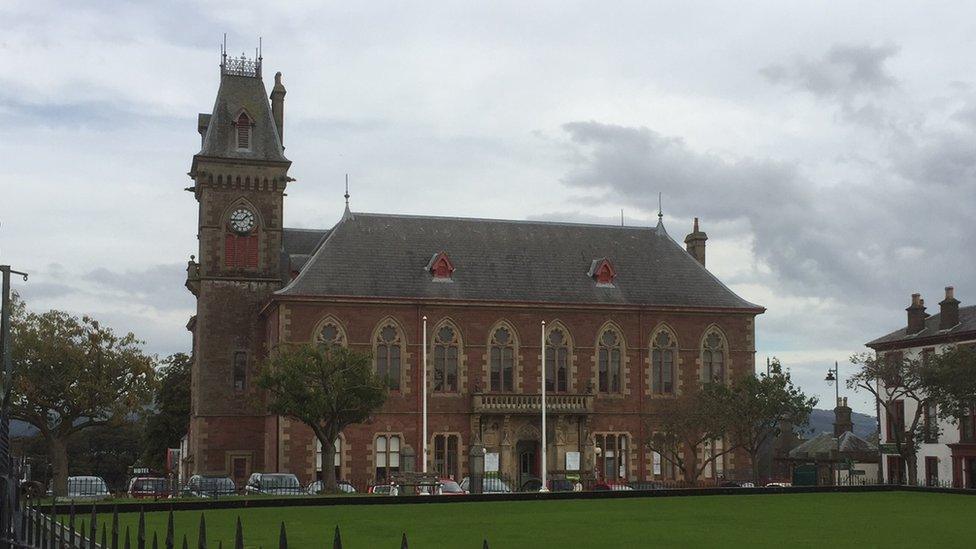Frae Wisconsin tae Wigtown: How an American won a Scots poetry prize
- Published
Wigtown's winning Scots language poem recited
The roots of poetry run deep in the south of Scotland.
The lands that were once home to Robert Burns, James Hogg and Christopher Murray Grieve - better known as Hugh MacDiarmid - have inspired more than their fair share of verse.
Here, too, sits the nation's book town and home to an annual poetry prize - one section of which celebrates the Scots language.
But as soon as this year's winner of that particular award speaks, you would know she hails from a little further west than Wigtown.
Renita Boyle was born and raised in Wisconsin.
She picked up a storytelling bug from her great-grandfather, a lumberjack, who used to tell her tales he had once recounted around the campfire.
Then personal loss saw her turn to poetry.
"I think, like a lot of people who write poetry or any kind of writing at all, they do it because they can't not - it is just something that is in you to do," she said.
"My father died when I was 13 years old and the first thing I did was go up to my bedroom and I wrote a poem.
"It is quite a therapeutic thing for me to do."

An artwork by Lisa Hooper helped to inspire the award winning poem
Nonetheless, it was still quite a journey to end up gaining recognition for her writing in Scots.
It is partly about belonging, she explained.
She met her future husband in Glasgow more than 30 years ago. She was welcomed into that family before having family of her own and then moving to Wigtown a decade ago.
Storytelling has always been in her blood but now, over the years, the words and ways of Scotland have started to seep in.
Another factor has been the role of Wigtown itself, which she credits for a creative energy and artistic support network that gave her the push to give the language a try.
One key figure in that effort was Scots poet and former James Hogg writer-in-residence, Rab Wilson.
'Beautiful work'
"Rab is always trying to get everybody to read and write in Scots," said Ms Boyle.
"He's the one that actually said - when are you going to write a Scots poem?"
Then Spring Fling writer-in-residence Marjorie Lofti Gill encouraged her to consider writing about an artwork.
Her winning poem, Sloe Jen, was inspired by a piece by artist Lisa Hooper but also a motherly fear of watching her teenage son leave the nest.
Judges praised the "lovely, consistent" use of the Scots language and described it as a "sad and beautiful work".
Some will wonder how an American can possibly write in Scots, but Ms Boyle said that was not such a problem.
It's reciting, still with a distinctive accent, that is most testing. But she has braved those waters just the same, thanks to a passion for the language that might put a few native Scots to shame.

Ms Boyle said Wigtown provided a great artistic support network
"I don't think I have conquered the Scots language," she said.
"Although I have written in Scots, I won't ever write in Scots the way that a Scottish person would write in Scots.
"There are some things you will never do in the same way as somebody who is native but there are other things you can bring to it because you are not native."
Ms Boyle said it might be a one-off, she might never write poetry again in the language of her adopted nation but she burst with pride at the recognition her work received.
"It meant a lot to me," she said.
"I actually cried when I won and that was not just about winning a prize, that was actually about affirming an identity I think."
As the world becomes a smaller place, it could be a trend we see more and more.
Historically, too, some writers have turned their backs on their mother tongue for one they feel suits them better.
A language is, after all, a living and evolving thing. So, perhaps you don't have to have used it all your life in order to get the best out of it.
- Published23 September 2016
